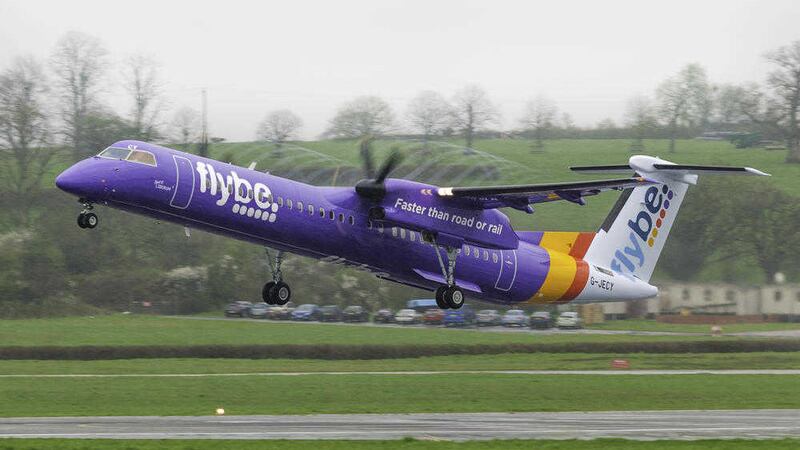REGIONAL airline Flybe has made a profit for the first time since listing on the stock exchange five years ago.
The turnaround come on the back of cheaper fuel and bigger loads on its increasing routes network.
And its chief executive Saad Hammad insisted that Flybe is "now a much more resilient business and well positioned for future profitable growth".
In its full-year results for the year ended March 31, Flybe revealed that it had made pre-tax profits of £2.7m, compared to a £35.6m loss in the previous year, while passenger numbers had jumped from 7.7m to 8.2m.
And revenues soared by 8.7 per cent to £623.8m after Flybe carried 5.9 per cent more passengers. The number of available seats, though, grew faster than people willing to fill them, pushing the load factor down by 2.6 percentage points to 72.6 per cent.
Overall, it marks a remarkable recovery from a company that appeared on the brink of collapse before Hammad implemented a three-year turnaround when he joined Flybe from easyJet in 2013.
Flybe is the biggest operator at George Best Belfast City Airport, where it employs 191 and operates 732 flights a week on its 15 routes.
Mr Hammad added: "We achieved profitability for the first time as a public company, following losses in every year since Flybe's stock market flotation in 2010.
"We delivered top-line growth in a difficult revenue environment, expanding our network and carrying more passengers than last year. We drove our unit costs down further.
"As a result of all the action we have taken, Flybe is now a much more resilient business and well positioned for profitable growth.
"We are pleased with this performance and confident that we are well placed to navigate the current industry challenges with the strongest balance sheet in our history and a disciplined organisation which is already taking cost and capacity actions to support profit growth in the coming year."
The results came despite industrial action by air traffic controllers in France, which accounts for around 12 per cent of Flybe’s seat capacity.
The company launched 52 new routes and established new bases in Cardiff and Doncaster. It also continued with its plan to own more of its fleet, rather than leasing its aircraft, and purchased three Q400 planes for a cash consideration of £24.4m.
Wyn Ellis, an analyst at Numis, said Flybe’s results were “an important milestone in the company’s transformation”.



